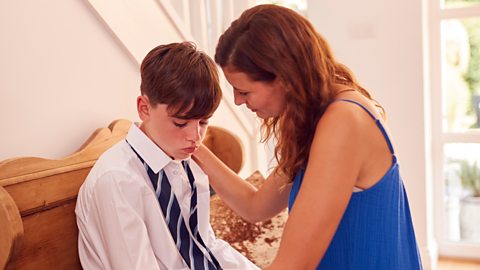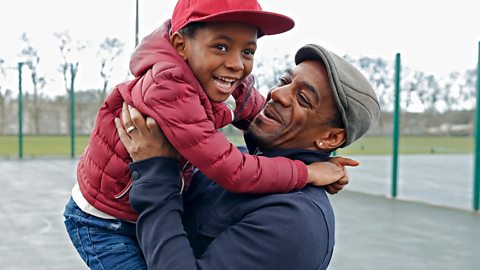ÔÇÿThe Boy, the Mole, the Fox and the HorseÔÇÖ is a magical and uplifting film adaptation of the renowned childrenÔÇÖs book by Charlie Mackesy. The story is full of hope and joy while touching on themes like loneliness, making mistakes, friendship, creating a community and asking for help.

The characters in the film each introduce concepts and help 'the boy' to understand his own feelings. The stillness of the film allows space to reflect on what the characters share and the emotions their conversations touch on. These themes and moments are potentially perfect opportunities to start talking with your child about how they feel about themselves and the topics the animation covers.
We spoke to Joanna Hunt, Head of Youth Practice Programmes at The ChildrenÔÇÖs Society and Rebekah Hipkiss, a Childline Supervisor, about how to use the film to start open conversations with your child.
Joanna says: ÔÇ£While tackling a discussion around mental health with a child can be hard, this is completely normal. The best way is to ensure the child feels safe, calm and relaxed. We find watching a film like The Boy, the Mole, the Fox and the Horse is a really useful way to start a conversation about how a child may be feeling. It offers space for a child to relate to a character and start to talk about their own feelings, enabling you to listen and gain a better understanding of what they are experiencing right now.ÔÇØ
Learn to take a new perspective, like 'the boy'
'The mole' helps 'the boy' see another perspective.
In the film, 'the mole' suggests that 'the boy' should climb a tree to get a different viewpoint.
If your child is particularly overwhelmed or anxious, it can help to take a look at things from a new perspective. Talk to your child about possible solutions and ways to fix a problem and allow them to feel empowered to make informed decisions.
ÔÇ£Simple techniques like breathing and counting to ten can help calm down a child when in overwhelming situations. Once calm, you can shift focus, take a new perspective and discuss what to do nextÔÇØ says Joanna.
Rebekah echoes this and says, ÔÇ£ItÔÇÖs important to be calm, listen and really validate their feelings. Then work with them to think about possible next steps. As parents we often want to fix something ourselves, but this can disempower the young person. ItÔÇÖs important that they are involved in that decision making and feel like they've got ownership over itÔÇØ
ÔÇ£It can be hard for children to talk about difficulties so itÔÇÖs good to have other ways of expressing feelings too. We often use creative therapy as a way to work out problems - this could be journaling, painting, listening to music or drawing to work out feelings. ItÔÇÖs important that children are given the privacy to be able to do that and if they feel comfortable, giving them space to share it with you or another trusted adult.ÔÇØ says Joanna.
Asking for help can make things easier
Offering help can be much easier than asking for help.
Theres no shame in asking for help, but it can be difficult at times. As the film shows, help isnt always hard to come by - 'the boy' kindly offers 'the mole' help and 'the mole' accepts the offer. But asking for help can feel embarrassing or awkward. In the film 'the boy' asks 'the horse': "What's the bravest thing you've ever said?" 'the horse' replies "Help Asking for help isn't giving up. It's refusing to give up."
There are many reasons a child may need help - if a child is feeling lonely for instance. In that circumstance Joanna says: "They can become quite shy and anxious and quiet. They might not want to go out anymore or go to school. Loneliness can also be related to bullying. Children may not know how to ask for help in these situations. If you notice these changes, itÔÇÖs important to ask open ended questions (starting with words like ÔÇÿHow might?ÔÇÖ, ÔÇÿWhat are?ÔÇÖ or ÔÇÿWhat ifÔǪÔÇÖ) which will allow your child to open up, rather than ÔÇÿyesÔÇÖ or ÔÇÿnoÔÇÖ questions like ÔÇÿdo you have friendsÔÇÖ?ÔÇØ
Rebekah says, ÔÇ£A lot of children worry about stressing out their parents and call us saying that they don't want to be a burden by sharing their problems. ItÔÇÖs about keeping those doors of communication open constantly, not just when things are going wrong or when they might need help. If weÔÇÖre constantly talking and having regular check-ins, it wonÔÇÖt feel like a big, massive thing later.ÔÇØ
Offer positive reinforcement and affirmation like 'the horse'
In the film, when 'the boy' blames himself for an accident, 'the horse' offers encouragement and helps him to understand that it wasn't his fault.
Children often feel overwhelmed when they think they have made a mistake or have done something wrong. Offering positive reinforcement and words of affirmation can help boost their confidence when things donÔÇÖt go to plan.
'The horse' helps 'the boy' to understand that accidents happen and it's OK to feel sad.
ÔÇ£ItÔÇÖs about being clear that sometimes we do have bad days, or things donÔÇÖt go to plan,ÔÇØ says Joanna. ÔÇ£A lot of the time children think that their parents cope with everything because they don't necessarily show that they're not coping or they're not having a good day. It's important to reaffirm that it's normal for us to not have such a great day from time to time.ÔÇØ
Turn a negative experience into a positive one by showing that itÔÇÖs ok to make mistakes so we can learn from them and become better. ÔÇ£You could say that by making mistakes, you are building your armor. If youÔÇÖve made 10 mistakes, then your armour is much stronger, and you can tackle even bigger things as you grow up.ÔÇØ says Joanna.
Know that itÔÇÖs OK to be honest about your feelings, like the fox
'The fox' is honest about how he feels.
In the film, 'the fox' talks honestly about his lack of self esteem - that he thinks nobody would be interested in what he has to say.
Parents can sometimes clam up around their children as they want to appear strong. Being a role model by talking openly about struggles you might have gone through as a child or as an adult can be encouraging and can help start a conversation.
Like 'the fox', parents and children alike may struggle with low self-esteem. ÔÇ£We often turn that around and reflect it back: ÔÇÿIf a friend said this to you, what would you say?ÔÇÖ - ItÔÇÖs about being kind to yourself,ÔÇØ says Rebekah.
Joanna agrees and says, ÔÇ£ItÔÇÖs normal for parents to have low confidence from time to time and thatÔÇÖs something you can share with your child. You can then do things together to start building confidence - like going out to the library, going to the park and playing with other children and speaking to other parents. These are practical things that can help build confidence step by stepÔÇØ.
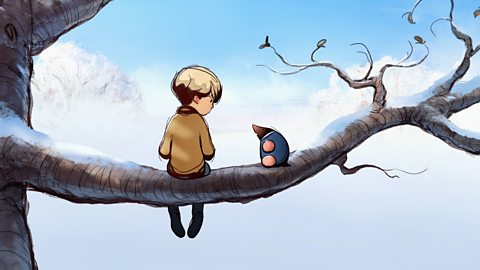
As parents itÔÇÖs also important that you seek help when you feel overwhelmed.
ÔÇ£It can be difficult to hear that your child is struggling so itÔÇÖs also important that you ask their school for help. As a parent, itÔÇÖs also important to have a supportive network around you. This could be leaning on extended family or friends, or you could get involved with local community groups. If youÔÇÖre really struggling, itÔÇÖs important to speak to your GP for adviceÔÇØ
This ParentsÔÇÖ Toolkit article has advice for creating a support network.
Watch The Boy, the Mole, the Fox and the Horse on │╔╚╦┐ý╩Í One on Christmas Eve at 16:55 and on Christmas Day at 09:00 or on │╔╚╦┐ý╩Í iPlayer.

For more help and information:
The Children's Society offer this collection of for children.
Childline offer support and advice to children .
The NSPCC have this useful page on
Parenting NI provides free support for parents across Northern Ireland. You can find the Parenting NI Freephone Helpline .
The Scottish Association for Mental Health has information about mental health services for young people .

More from │╔╚╦┐ý╩Í Bitesize Parents' ToolkitÔǪ
Parents' Toolkit
Fun activities, real-life stories, wellbeing support and loads of helpful advice - we're here for you and your child.

How to tackle anxiety with Dr Anna
Calming techniques to help parents and children manage their anxiety.
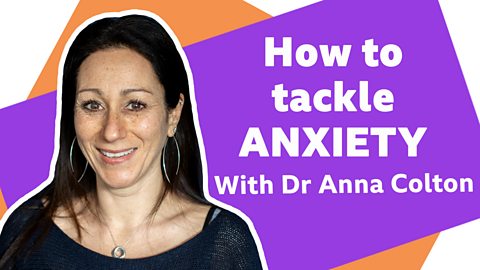
Christine McGuinness - How my autism can help me to help my kids
Christine McGuinness talks about the positives and challenges she's faced through her life as a mum since diagnosis.
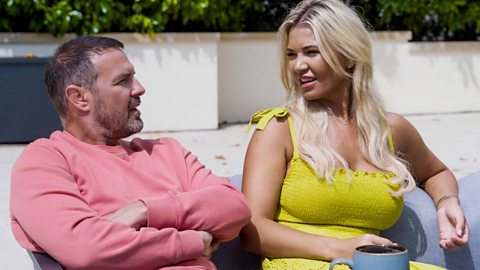
Michael Mosley: Five tips for helping your kids sleep well
Dr Michael Mosley offers advice on improving health and concentration through better sleep habits. Here are his tips for parents to help their kids.

One in four children are bullied - what can parents do?
Psychologist Anjula Mutanda outlines how parents can spot signs of bullying, improve resilience and build confidence.
